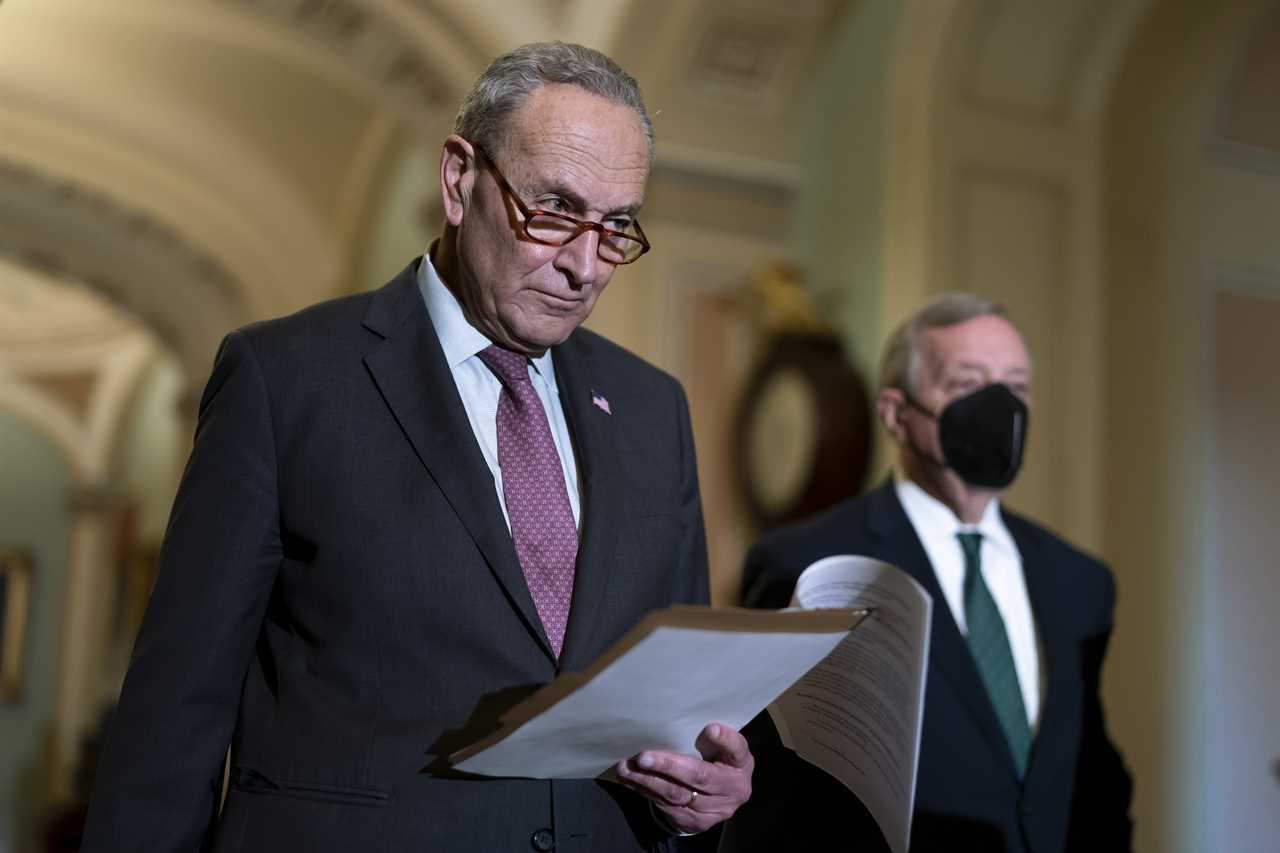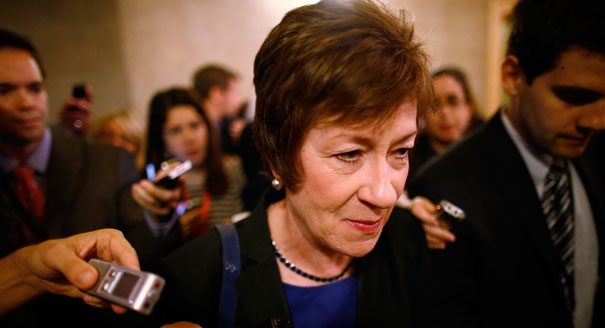
Chuck Schumer is quietly stoking bipartisan talks about updating the Electoral Count Act, according to multiple people familiar with the matter, marking a shift from his party's single-minded focus on broader election reform legislation.
The Senate majority leader hasn’t committed to backing the work of a growing bipartisan coalition of senators that's interested in modernizing the very law that directly influenced the Jan. 6 Capitol insurrection. He’s waiting to see what deal, if anything, the group comes up with before gaming out whether legislation could win 60 votes on the Senate floor.
But Schumer’s disinterest in quashing the 16-member bipartisan crew is itself notable, given that the outdated Electoral Count Act is a tricky issue for Democrats who have spent months pushing much larger bills that would federalize major components of elections while beefing up the Voting Rights Act.
“He’s certainly aware that it’s going on. And seemed to be interested in seeing what could be done,” said Sen. Jeanne Shaheen (D-N.H.), a member of the bipartisan group. “This is an avenue that seems like it can garner bipartisan support. And for right now, that’s important to do.”
While tackling the outdated Electoral Count Act is popular among scholars after Republicans challenged the election results last year and a pro-Trump mob stormed the Capitol, both parties have used the arcane text to force votes on election certifications. The upper-chamber negotiators are now aiming to make it harder for senators to object to those certifications, and to clarify that the vice president cannot unilaterally overturn the election.
The group picked up steam after centrist Sens. Joe Manchin (D-W.Va.) and Kyrsten Sinema (D-Ariz.) declined last week to weaken the filibuster in order to pass the more expansive elections bill. On Monday several new Democratic senators, like Ben Cardin of Maryland and Chris Murphy of Connecticut, joined the motley cohort.
Before the group developed, most Democrats had dismissed the more narrow electoral discussions that took off in recent weeks, trying to downplay them as a politically motivated off-ramp for Republicans to avoid blame ahead of the failed vote on a Senate rules change.
Maine Sen. Susan Collins, the group’s leader on the GOP side, said the more narrow the focus of their talks, the more quickly the group can move. In addition to raising the objection threshold and clarifying the vice president’s role, she said the group is weighing reauthorization of the Election Assistance Commission and installing federal penalties for people who target elections officials and poll workers.
“There are some who want to revisit the voting reforms that were not passed. I’m not among those. I would like to do our best to come up with a bipartisan bill that could garner 60 or more votes,” Collins said. When it comes to reviving pieces of Democrats’ election reform package, she added, “there is not consensus, at all, on whether that should be part of any agreement that we’re able to reach.”

Schumer is among the Democrats who previously scoffed at any focus on the Electoral Count Act as a diversion from the party’s goals of expanding ballot access. He said Senate Minority Leader Mitch McConnell’s endorsement of reforming the 135-year-old law was “unacceptably insufficient and even offensive” when compared to broader voting and election reforms that Democrats sought.
Yet that context has all changed since Democrats’ fizzled push to change the Senate rules and pass expansions to early voting and limit gerrymandering. More than a dozen senators in both parties logged onto Collins’ Zoom chat on Monday, and the core group now includes seven Democrats and nine Republicans.
Collins, who has tangled with Schumer both in her recent election campaign and on the Senate floor, said she’s heard “mixed” information about whether the Democratic leader will accept her group’s product.
The situation is reminiscent of last year, when another bipartisan group started working on an infrastructure bill even as many in Schumer's party were skeptical that effort would help them reach their broader policy goals. The New Yorker ended up endorsing their final product, as did President Joe Biden, and McConnell eventually voted for it.
‘We’re going to plow ahead and see if we can come up with a bipartisan bill. I mean, if 16 senators are able to reach consensus, that would be a significant group. The success of the bipartisan infrastructure group is a model for us,” Collins said.
The big difference between the infrastructure dealmaking and the current Electoral Count Act discussions is that the party-line elections effort has already failed, leaving Democrats with a bipartisan deal as their sole option to move forward.
Schumer is “not opposed” to the new group, said an aide to a member involved in the talks. But he may have to wade in more directly to produce a result that can get 60 votes and doesn’t divide the party. No. 2 Senate Democrat Dick Durbin, Rules Chair Amy Klobuchar (D-Minn.) and Sen. Angus King (I-Maine) are working on their own separate proposal to alter the Electoral Count Act.
McConnell has publicly encouraged work on the Electoral Count Act, which allowed a handful of GOP senators and the majority of House Republicans to force votes and debate on objections to certifying Biden’s 2020 presidential win. Schumer has been far more circumspect, saying on “The View” this month that working on the act is “fine” and it’s something Democrats may consider “but not as a substitute for these vital, vital provisions which will keep the right to vote and prevent voter suppression.”
The group is now breaking out into smaller teams that will focus on individual reforms, like the vice president’s role and the threshold for challenging an election. Senators plan to meet again in person next week. Given that midterm election primaries will begin soon, there is some impetus among senators to move quickly, though they haven’t even decided on some of the biggest questions, such as where to set the threshold for the number of lawmakers needed to force a vote on states' presidential election results.
One participant, speaking candidly on condition of anonymity, described Monday’s Senate huddle as “basically the first meeting” of the enlarged group, and several Democrats said discussions are truly just getting underway.
Marianne LeVine contributed to this report.
----------------------------------------
By: Burgess Everett
Title: Schumer gives Senate's new bipartisan gang breathing room on post-Jan. 6 reform
Sourced From: www.politico.com/news/2022/01/27/schumer-electoral-count-act-group-breathing-room-00002585
Published Date: Thu, 27 Jan 2022 04:30:00 EST






